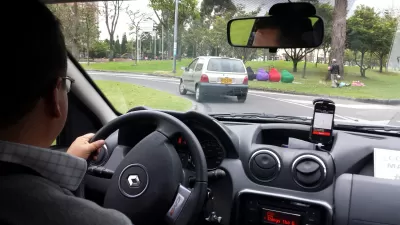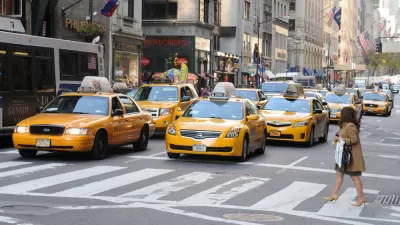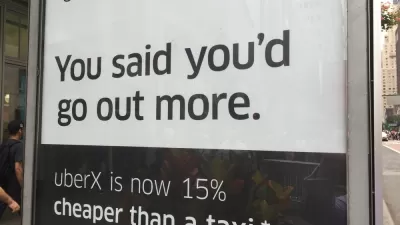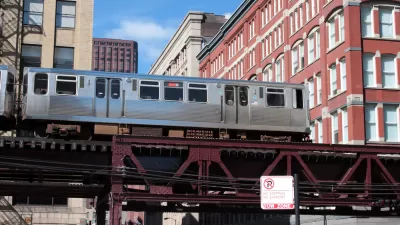A fight over the travel data of shared use mobility companies is just starting in Los Angeles.

Where are those scooters going? Los Angeles is looking to get travel information from scooter shares, but Uber, which provides scooter services through its company, Jump, has voiced concerns. The city has created a data standard called the Mobility Data Specification (MDS) to deal with concerns about privacy and proprietary information, but TNC companies like Lyft and Uber still claim this standard doesn’t do enough. Scooters may seem to be a small piece of the transportation universe, but "Eight scooter- and bike-share companies are permitted to operate up to 36,170 vehicles within Los Angeles county," Aarian Marshall reports for Wired.
Trip information from those companies could be very useful for improving travel in the city. "Data on where those scooters are parked, and where they travel each day, could help officials plan for the future. Over time, the data also could provide the foundation for an app offering residents real-time info about their favorite transit modes," Marshall writes. It could also expose some negative impacts of shared use mobility companies.
Some speculate that after getting data from scooter-share operators, the city will turn its attention to the ride hailing services that Uber and Lyft offer. This information could do more to confirm findings about how much TNCs are adding to congestion and pulling riders out of more sustainable transportation modes like public transit, walking and biking. "Lyft, which also operates scooters in LA, also submitted objections to MDS during a public comment period," Marshall reports. Uber attempted to deliver data on its own terms with its program Uber Movement, but the city complains that this data is too limited to offer the public the information the city needs to improve its transportation resources.
FULL STORY: WHY UBER IS FIGHTING CITIES OVER DATA ON SCOOTER TRIPS

Study: Maui’s Plan to Convert Vacation Rentals to Long-Term Housing Could Cause Nearly $1 Billion Economic Loss
The plan would reduce visitor accommodation by 25,% resulting in 1,900 jobs lost.

North Texas Transit Leaders Tout Benefits of TOD for Growing Region
At a summit focused on transit-oriented development, policymakers discussed how North Texas’ expanded light rail system can serve as a tool for economic growth.

Why Should We Subsidize Public Transportation?
Many public transit agencies face financial stress due to rising costs, declining fare revenue, and declining subsidies. Transit advocates must provide a strong business case for increasing public transit funding.

How Community Science Connects People, Parks, and Biodiversity
Community science engages people of all backgrounds in documenting local biodiversity, strengthening connections to nature, and contributing to global efforts like the City Nature Challenge to build a more inclusive and resilient future.

Alabama: Trump Terminates Settlements for Black Communities Harmed By Raw Sewage
Trump deemed the landmark civil rights agreement “illegal DEI and environmental justice policy.”

Dear Tesla Driver: “It’s not You, It’s Him.”
Amidst a booming bumper sticker industry, one writer offers solace to those asking, “Does this car make me look fascist?”
Urban Design for Planners 1: Software Tools
This six-course series explores essential urban design concepts using open source software and equips planners with the tools they need to participate fully in the urban design process.
Planning for Universal Design
Learn the tools for implementing Universal Design in planning regulations.
City of Santa Clarita
Ascent Environmental
Institute for Housing and Urban Development Studies (IHS)
City of Grandview
Harvard GSD Executive Education
Toledo-Lucas County Plan Commissions
Salt Lake City
NYU Wagner Graduate School of Public Service





























